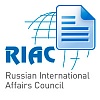Greece and the European Union Caught in a Game of Chicken
In
Login if you are already registered
(no votes) |
(0 votes) |
Author: Assoc. Prof. Dimitrios Triantaphyllou, Director, Center for International and European Studies Kadir Has University, Istanbul.
To say that relations between Greece and the European Union are being tested is an understatement. Fundamentally, Greece and the EU seem to be at odds with a part of themselves – a protracted family quarrel of sorts at the family table between the black sheep of the family and his brethren. A family quarrel that is unrelenting, a family quarrel that both sides know could be fatal to all should decide they do not want to sit together at the table anymore. In other words, Greece’s relations with the European Union are a game of chicken, or brinkmanship as it is referred to in the international relations, where both Greece and the European Union know they cannot live without the other but are increasingly uncertain as to whether they want to.
The problem for Greece in the current phase of its relationship with the European Union is that it has become weaker than its relative weakness as a midsized EU member state, with external frontiers close to the turbulence of the ISIS world and the uncertainty of the West’s relations with Russia, economy shrinking by 25% since its peak in mid-2008, an unemployment close to 26%, and many more dire economic and social indicators. The protracted nature of the negotiations over the terms of further bailouts have essentially given rise to the notion that Greek exceptionalism could be the way forward to justify the possible failure of reaching an honorable deal which the Greek government as well those of its partners could ‘sell’ to their respective constituencies. Yet, even if a deal that allows Greece to remain a black sheep within the family is reached, the public recriminations on all sides have further loosened the vital bonds between the two sides, thereby leaving Greece more marginalized than ever within the European Union.
With the growing inability to find a common language at the technical level, the proliferation of talks between Alexis Tsipras, and other EU leaders, in particular Angela Merkel, as well as talks between EU leaders about what to do with Greece, is a sign that we are in the midst of the culmination of the unfolding drama. Tsipras may well need this to survive politically by convincing his electorate either that the deal is a product of tough bargaining at the highest political level rather than that of hard pressure or that the failure to reach a deal. The same applies to his European counterparts that need to justify either reaching a deal with a perennial laggard or failing to reach one albeit the disastrous consequences of integration.
(no votes) |
(0 votes) |




